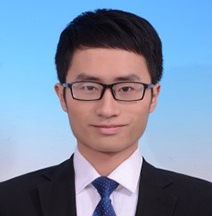副教授

刘畅
职称/职务:副教授办公地点:立德楼1127室
E-mail:changliuecon@ruc.edu.cn, liuchanggsm@163.com
研究领域
发展经济学、政治经济学、公共经济学
个人学术主页:http://changliuchina.weebly.com
工作经历
2023— 中国人民大学国家发展与战略研究院,副教授
2020—2023 中国人民大学国家发展与战略研究院,讲师
2018—2020 普林斯顿大学当代中国研究中心、香港中文大学(深圳)经管学院,博士后
教育背景
2015—2018 北京大学,光华管理学院,经济学博士
2013—2015 中央财经大学,财政学院,经济学硕士
2009—2013 中央财经大学,财政学院,经济学学士
当前研究领域
发展经济学、财政学
中文发表:
13. 刘畅、吴敏、周黎安:《财政包干制时期的财政分权与经济增长:县级层面的证据》,《中国经济史研究》,接受待发表。
12. 曹光宇、周黎安、刘畅*、周璟鑫:《共享单车进驻对城市空气质量的影响》,《经济学季刊》,2023年第23卷第2期。
11. 曹光宇、刘畅*、周黎安:《大数据征信与平台导流:基于共享单车信用免押骑行的实证研究》,《世界经济》,2022年第9期。
10. 刘畅、靳永爱:《产假政策与生育意愿》,《世界经济文汇》,2022年第2期。
9. 范子英、高跃光、刘畅:《营养干预、健康与教育——基于国家营养改善计划的研究》,《财贸经济》,2020年第7期(获得第七届邓子基财经学术论文奖)。
8. 曹光宇、刘晨冉、周黎安、刘畅*:《财政压力与地方政府融资平台的兴起》,《金融研究》,2020年第5期(封面文章,获得《金融研究》2020年年度优秀论文奖)。
7. 刘畅、曹光宇、马光荣:《地方政府融资平台挤出了中小企业贷款吗?》,《经济研究》,2020年第3期(获得第六届洪银兴经济学奖,被《社会科学文摘》转载)。
6. 吴敏、刘畅、范子英:《转移支付与地方政府支出规模膨胀——基于中国预算制度的一个实证解释》,《金融研究》,2019年第3期。
5. 刘畅、刘冲、马光荣:《中小金融机构与中小企业贷款》,《经济研究》,2017年第8期(封面文章)。
4. 马光荣、郭庆旺、刘畅:《财政转移支付结构与地区经济增长》,《中国社会科学》,2016年第9期(获得第七次全国优秀财政理论研究成果奖一等奖,被《人大复印资料·财政与税务》转载)。
3. 刘畅、刘冲:《灾害冲击、“大饥荒”与内生的财政分权》,《经济社会体制比较》,2015年第3期。
2. 刘畅、马光荣:《财政转移支付会产生粘蝇纸效应吗?——来自断点回归的新证据》,《经济学报》,2015年第1期。
1. 白彦锋、刘畅:《中央政府土地政策及其对地方政府土地出让行为的影响:对“土地财政”现象成因的一个假说》,《财贸经济》,2013年第7期(被《人大复印资料·财政与税务》和《中国区域经济学年鉴(2012-2022)》转载)。
*通讯作者
英文发表:
10. Hanming Fang, Chang Liu*, and Li-An Zhou, 2023, Window Dressing in the Public Sector: Evidence from China’s Compulsory Education Promotion Program, Journal of Public Economics, 222: 104878.
9. Qianmiao Chen, Qingyang Huang, Chang Liu*, and Peng Wang, 2022, Career Incentives of Local Leaders and Crisis Response: A Case Study of COVID-19 Lockdowns in China, European Journal of Political Economy, 75: 102180.
8. Chang Liu* and Li-An Zhou, 2022, Does International Travel Cause Economic Growth? Evidence from China’s Removal of Travel Restrictions on Foreigners, Economics of Transition and Institutional Change. 30(2): 337-355.
7. Chang Liu* and Li-An Zhou, 2022, Radical Target Setting and China’s Great Famine, Journal of Law, Economics & Organization, 38(1): 120-160.
6. Bing Li, Chang Liu*, and Stephen Teng Sun, 2021, Do Corporate Income Tax Cuts Decrease Labor Share? Regression Discontinuity Evidence from China, Journal of Development Economics, 150: 102624.
5. Chang Liu and Wei Xiong, China’s Real Estate Market, 2020, Handbook of China’s Financial System, edited by Marlene Amstad, Guofeng Sun and Wei Xiong, Princeton University Press, 181-207.
4. Qingyang Huang, Chang Liu*, and Li-An Zhou, 2020, Farewell to the God of Plague: Estimating the Effects of China’s Universal Salt Iodization on School Enrollment, Journal of Comparative Economics, 48(1): 20-36.
3. Chang Liu and Guangrong Ma, 2019, Are Place-Based Policies Always a Blessing? Evidence from China’s National Poor County Program, Journal of Development Studies, 55(7): 1603-1615.
2. Chang Liu and Guangrong Ma, 2016, Taxation without Representation: Local Fiscal Response to Intergovernmental Transfers in China, International Tax and Public Finance, 23(5): 854-874.
1. Qingwang Guo, Chang Liu, and Guangrong Ma, 2016, How Large is the Local Fiscal Multiplier? Evidence from Chinese Counties, Journal of Comparative Economics, 44(2): 343-352.
* Corresponding author
著作和章节
独著《中国财税改革绩效评价:制度及其影响》,中国人民大学出版社,2021年5月。
独著《美国财政史》,社会科学文献出版社,2013年3月。
参编《中国分税制改革20周年:回顾与展望》,“第5章:中国分税制改革中需澄清的两个问题”,经济科学出版社,2014年6月(本书获北京市第十四届哲学社会科学优秀成果二等奖)。
主持科研项目
国家自然科学基金青年项目,“全面二孩”政策下的生育意愿、生育行为及其经济影响,项目批准号72103193,2022.01-2024.12。
中国人民大学科学研究基金面上项目,结构性货币政策与经济高质量发展:基于定向降准政策的研究,项目批准号22XNA012,2022.01-2024.12。
中国人民大学新教师启动金项目,“运动式治理”模式研究,项目批准号22XNF015,2022.01-2024.12。
学术荣誉及奖励
2023年9月,中国人民大学优秀科研成果奖一等奖(2022年)。
2022年1月,中国人民大学优秀科研成果奖(2021年)。
2021年11月,第七次全国优秀财政理论研究成果奖一等奖。
2021年10月,第六届洪银兴经济学奖(青年)。
2021年9月,2020年度《金融研究》优秀论文奖。
2021年9月,第七届邓子基财经学术论文奖。
2019年12月,2019年当代中国经济学博士创新项目。
2019年11月,第五届中国财政学论坛优秀论文二等奖。
2018年6月,北京大学优秀博士学位论文。
2017年10月,教育部博士研究生国家奖学金。
2017年9月,2017—2018年度北京大学博士研究生校长奖学金。
2016年10月,教育部博士研究生国家奖学金。
2016年9月,2016—2017年度北京大学博士研究生校长奖学金。
2015年12月,中央财经大学2015届优秀硕士学位论文。
2015年9月,2015—2016年度北京大学博士研究生校长奖学金。
2014年12月,教育部硕士研究生国家奖学金。
2013年6月,中央财经大学2013届优秀本科生毕业论文。
2012年12月,中央财经大学“学术科研十杰”。


